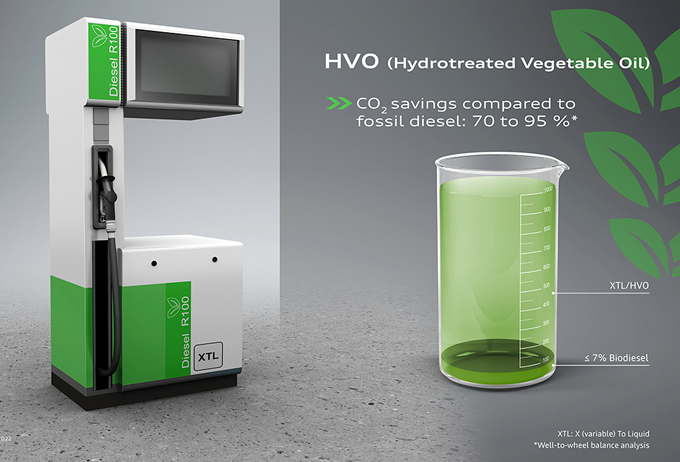Can biomass help the UK achieve net zero? - How resistor technology supports renewable energy projects
Although biomass releases carbon dioxide (CO2) during the combustion process, the plants used as fuel capture almost as much CO2 through photosynthesis, meaning that it is widely considered to be carbon neutral.
New study into new renewable and affordable microgrid using biogas from agriculture farming
The innovations work for both islanded mode and on-grid application, particularly for communities with off-grid/unreliable power-systems. They also work for second life batteries as energy storage solutions.
Evaluating the Potential of Green Aviation in 2022
The need for green aviation becomes increasingly critical as climate concerns grow more severe. Where does the industry fall today with this technology, and what does it need to improve?
New biodiesel strains offer measurable gains
Hydrotreated Vegetable Oil is gaining popularity as a more environmentally friendly option for reducing emissions of diesel ICEs
Recent innovations in turning Agricultural Waste into Biofuels
Wastes from fields and wastes from processing are the two kinds of agricultural wastes. Field wastes are present after harvesting crops and include stems, leaves, and stalks, and waste after processing crops includes seeds, peels, husks, etc.
Magnetic Fields - A Cutting Edge Biotechnology Tool in Phycoresearch
Commercial application of microalgae as a bio-fuel feedstock has necessitated devising methodologies to optimize growth conditions in promising strains to induce high lipid content for semi-continuous harvest of the biomass.
Energy Transition: Total Is Investing More Than €500 Million to Convert Its Grandpuits Refinery Into a Zero-crude Platform for Biofuels and Bioplastics
Of the 400 jobs at the Grandpuits platform and its associated Gargenville (Yvelines) depot today, 250 will be maintained after the conversion. Furthermore, 15 additional jobs will be created on the Grandpuits site in a packaging unit connected to the bioplastics unit.
NREL, ExxonMobil Teams Imagine, Research New Solutions for Tomorrow's Energy Challenges
Through a research partnership with the National Renewable Energy Laboratory (NREL), the corporate giant that once urged motorists to "Put a tiger in your tank," may one day suggest they fuel up with some algae.
Waste to Energy Market size is anticipated to grow at a CAGR of over 7% by 2024.
The surging urban population and industrialization has resulted in a massive increase of waste generation every year. This trend is particularly growing across emerging economies.
Oil vs. Gas: Which is the best option?
The threat of climate change is looming over us more than ever and one of the burning questions of our time remains: 'how can we create a greener, more sustainable future that still allows businesses to thrive?'
CalBio and Bloom Energy to Generate Renewable Electricity From Dairy Waste
On-Site Power Solution Will Dramatically Reduce Methane Emissions from Dairies by Using Captured Biogas to Generate Electricity without Combustion
Semi-artificial Photosynthesis
Because biofuels are made from agricultural products, fuel production from such products implies the use of agricultural land and crops that can also be used for the production of food.
Can We Turn Food Waste into Energy?
The potential of food waste being converted to energy is just being recognized. Why waste over 70 percent of the world's food by sending it into landfills, rather than harnessing it for energy?
Taking to the Skies With Waste
Comments from the Department of Transport said that planes and lorries that have the potential to be driven by waste could use up to 90% less carbon in comparison to regular fossil fuels.
DLS Converts 2 Million Pounds of Label Waste into Clean Energy
DLS, a national label converter, finds a cost-effective waste management solution that saves 2 million pounds of label matrix annually from reaching landfills while providing a clean burning fuel source for energy companies.
Records 1 to 15 of 36
Featured Product

HPS EnduraCoilTM Cast Resin Medium Voltage Transformer
HPS EnduraCoil is a high-performance cast resin transformer designed for many demanding and diverse applications while minimizing both installation and maintenance costs. Coils are formed with mineral-filled epoxy, reinforced with fiberglass and cast to provide complete void-free resin impregnation throughout the entire insulation system. HPS EnduraCoil complies with the new NRCan 2019 and DOE 2016 efficiency regulations and is approved by both UL and CSA standards. It is also seismic qualified per IBC 2012/ASCE 7-10/CBC 2013. Cast resin transformers are self-extinguishing in the unlikely event of fire, environmentally friendly and offer greater resistance to short circuits. HPS also offers wide range of accessories for transformer protection and monitoring requirements.













.png)

